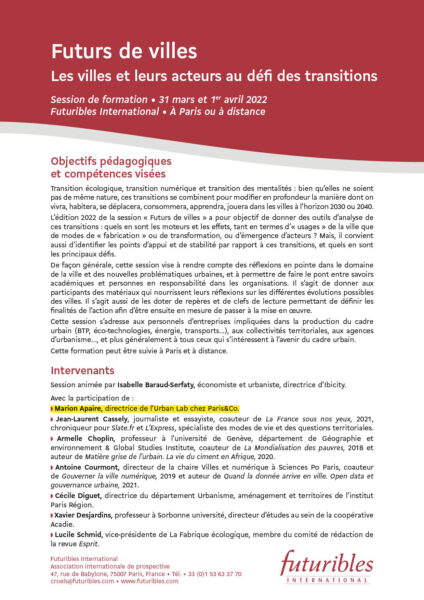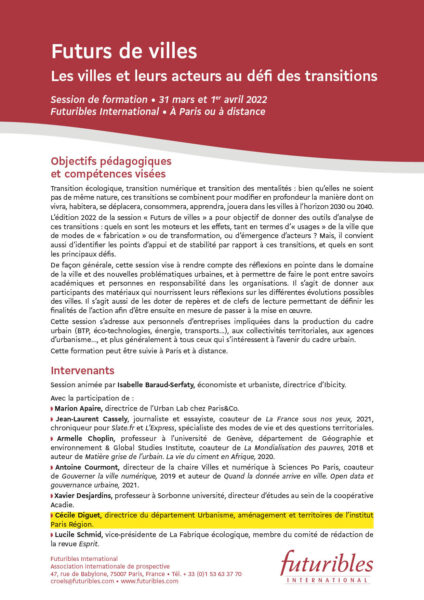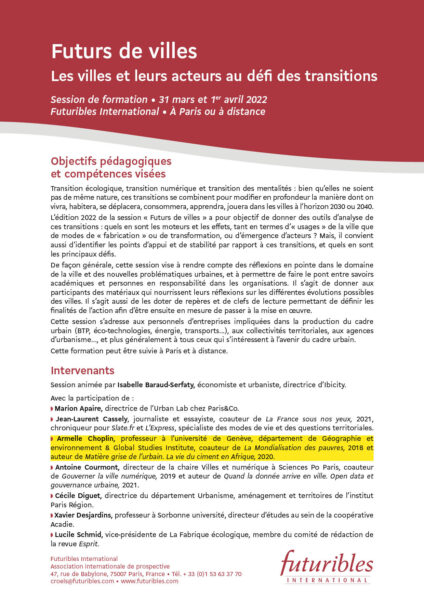Competition between the world’s major cities for tourists, investors and talent has become increasingly fierce. Quite apart from each city’s intrinsic features, major high-profile events represent hotly-contested opportunities to gain news coverage and media attention generally, at least for the duration of the event. And yet, as we have seen in this issue with regard to major sporting events, the economic, social and indeed environmental impact in the medium-to-long term of organizing great international sporting tournaments is far from systematically positive for the host cities –and may even leave financial burdens lasting many years.
On the other hand, things are quite different in the cultural field, as Marthe de La Taille-Rivero shows here, drawing on the experience of the cities chosen as European capitals of culture. Apart from the fact that the infrastructural investments and needs are very different –and much lower– than required for the organization of sporting events, culture seems to play an economically stimulating role for cities. This at least is what emerges from assessment of the experience of several European capitals of culture (Glasgow, Liverpool, Lille etc.) covered in this article.



